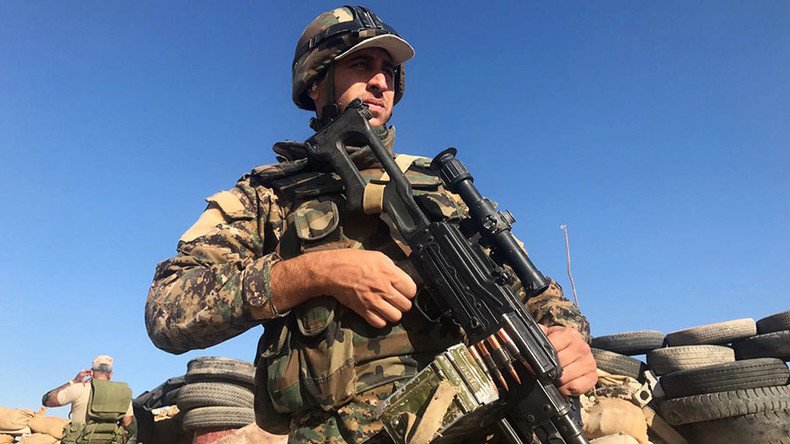US destroying Syrian cities liberated from ISIS to obstruct pro-Assad forces – analyst

The United States is losing ground, both in Syria and Iraq, and it wants to hold on to whatever it can in order to enter into negotiations later on, Jamal Wakeem, international relations professor, Lebanese University, told RT.
Syrian troops on Saturday liberated the city of Al-Mayadeen in Deir ez-Zor province from ISIS, according to the Russian defense ministry.
RT: How long could it take to liberate this remaining 8% of Syrian territory from ISIS?
Jamal Wakeem: I believe that ISIS had collapsed and to liberate the remaining eight percent is a matter of time. But I believe at the same time that the big challenge for the Syrian army and their allies is mainly the American interference in northeastern Syria, because they are backing Kurdish troops to control that area and call for an autonomous region there in order for the US to have an area of influence in northeastern Syria. The liberation of Al-Mayadeen is a very important achievement for the Syrian army, because it strengthens its grip on one key city that lies on the line of communication that links Syria to Iraq, on the one hand, and at the same time it strengthens the position of the Syrian army in Deir ez-Zor, and it gives the Syrian army better access to northeastern Syria, in order to obstruct the attempts of the Americans and their allies to have like an autonomous region in northeastern Syria – specially at the time when the Kurdish forces have taken over Raqqa, and they have let ISIS forces to withdraw from the city with the objective of heading eastward in order to block the Syrian army from achieving major successes towards linking with Iraq.
Syrian army liberates key ISIS stronghold in country's east https://t.co/HURkR1ItRm
— RT (@RT_com) October 15, 2017
RT:Al-Mayadeen was liberated relatively quickly, in comparison with Deir ez-Zor, several parts of which are still under ISIS control. What have been the main differences in the two operations?
JW: First of all, Al-Mayadeen is a much smaller city than Deir ez-Zor. At the same time, the plan of ISIS was to hold on to Deir ez-Zor in order to obstruct the attempt of the Syrian army to have a strong position on the Euphrates in order to cross to the northern area of Syria. That’s why they focused on Deir ez-Zor and they gave less importance to Al-Mayadeen – this was one factor. Another factor was that the Syrian army was pressing in Deir ez-Zor, and at the same time was launching another attack on Al-Mayadeen. I believe that this was the main reason and of course we need to mention the support of the Russian air force and the Russian military experts, and of course Iranian forces fighting alongside the Syrian army.
EXCLUSIVE: #ISIS warehouses full of weapons found inside liberated Al Mayadeen, #Syria (VIDEO) https://t.co/v9IIYx6vOtpic.twitter.com/wVtGy1lC3I
— RT (@RT_com) October 15, 2017
RT:In the city of Raqqa, where the US-backed anti-ISIS operation is ongoing... the Russian military say the coalition is using the wrong tactics, as they're trying to destroy the city's water supplies, which could of course impact greatly on civilians. Do you agree?
JW: The tactic used by the US forces – whether in Syria or in Iraq - is to cause as much damage as possible to make the cities that get liberated from ISIS hard to rebuild and to reconstruct. At the same time, they want to turn the issue of the civilians and their needs as a mean to obstruct further advances of the Syrian army – especially that the US is losing ground, both in Syria and Iraq, and it wants to hold on to whatever it could in order to enter into negotiations later on. So I believe that this was the case similar to what happened in the western part of Mosul, for example, where the American forces bombarded the city and destroyed up to 80 percent of the western quarter of Mosul.












